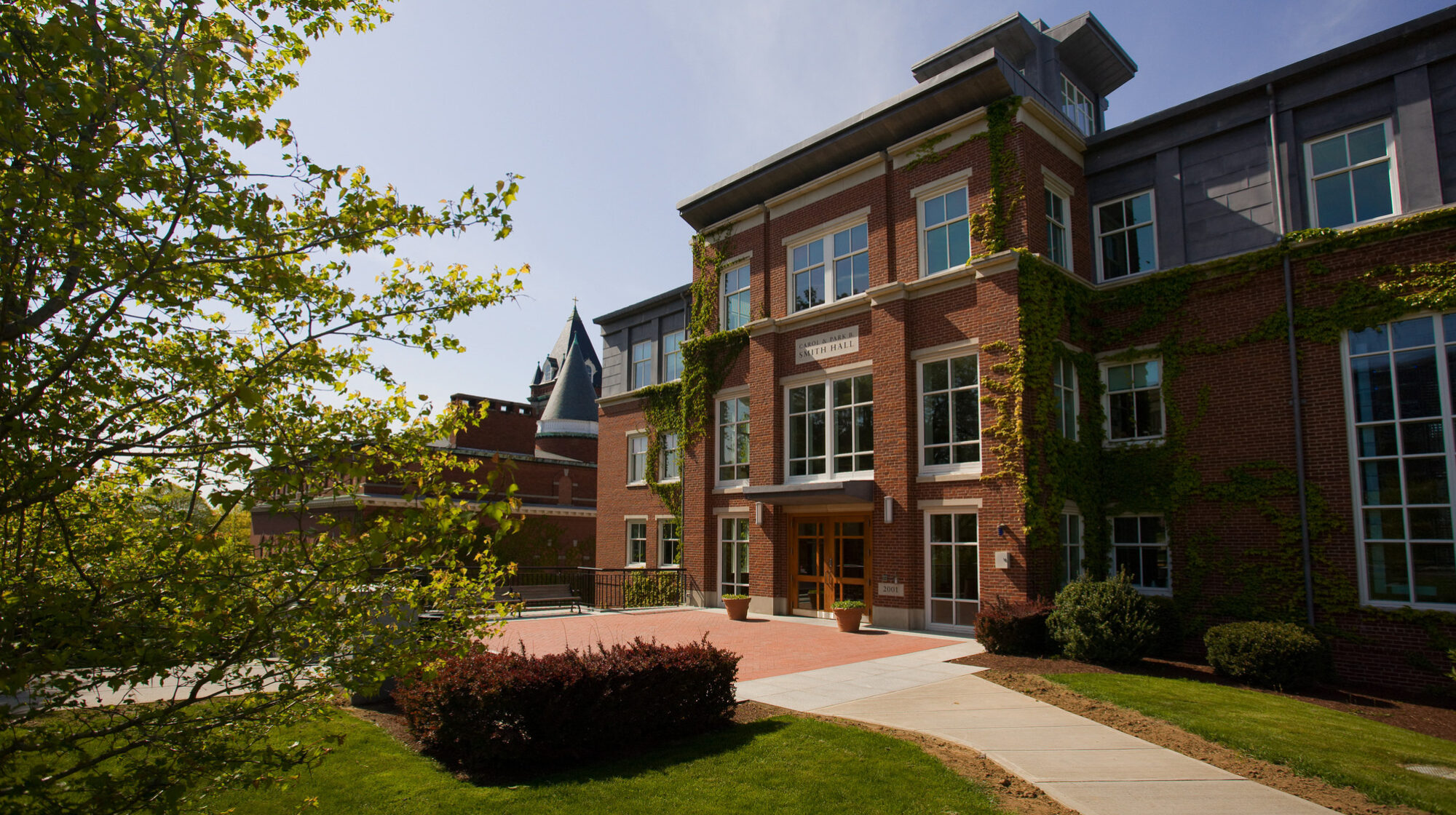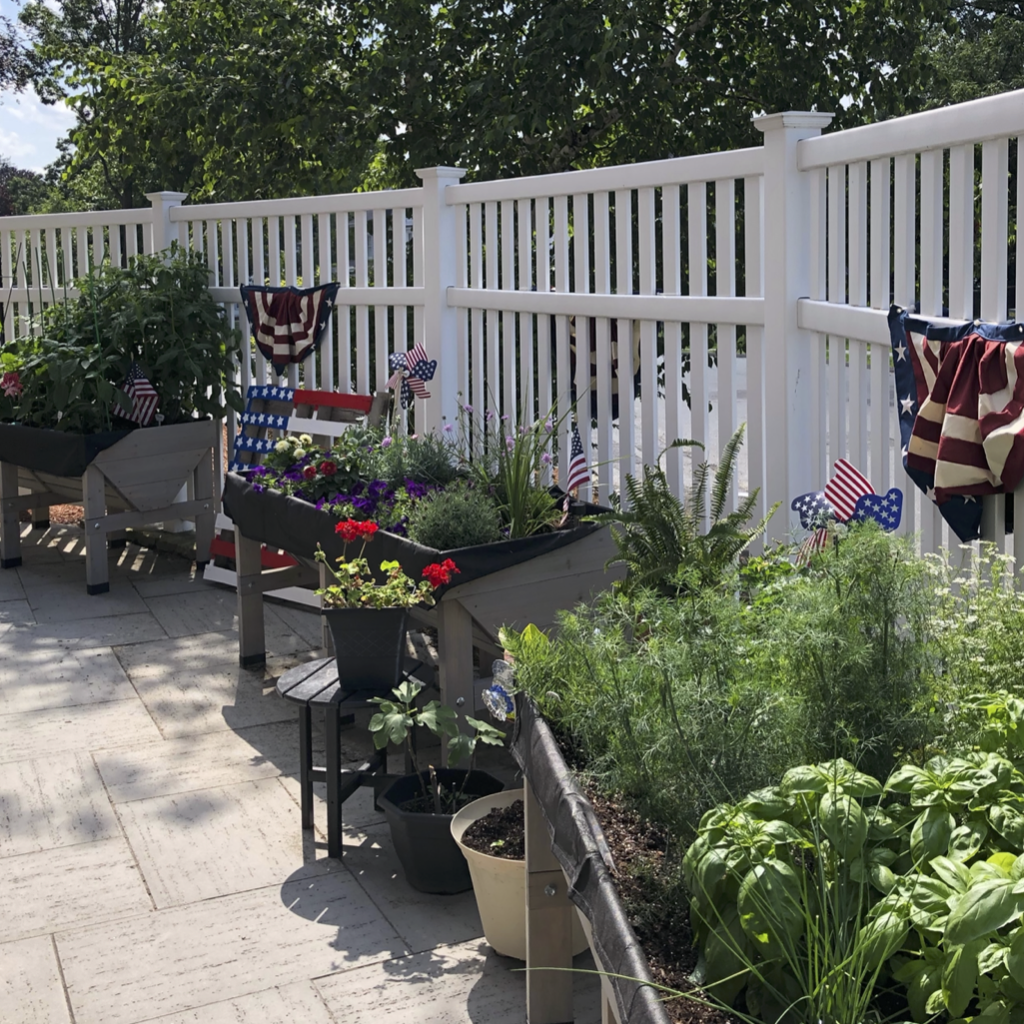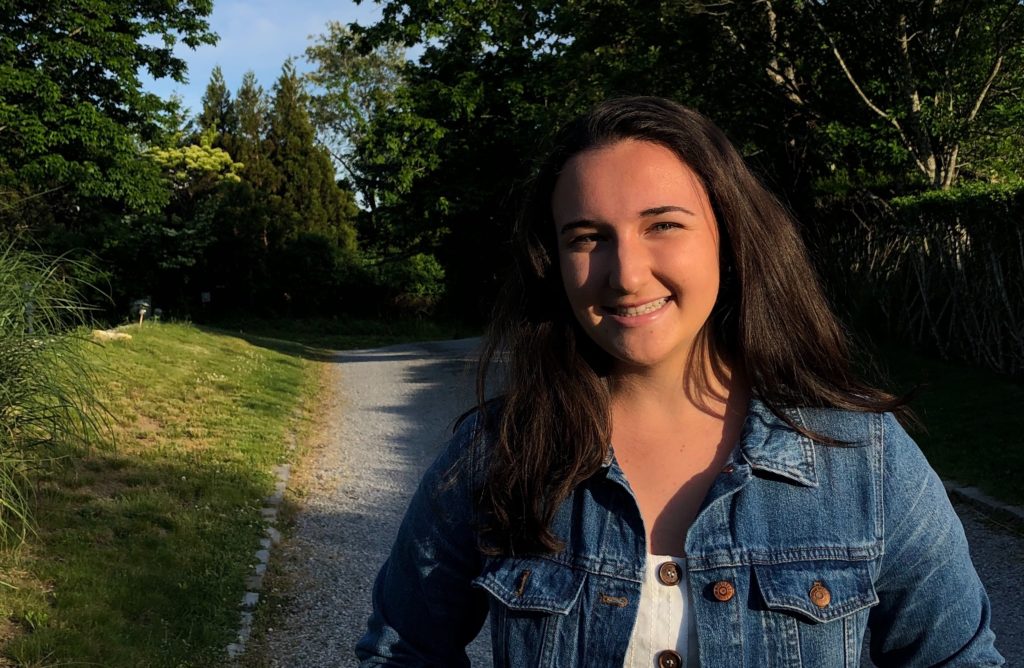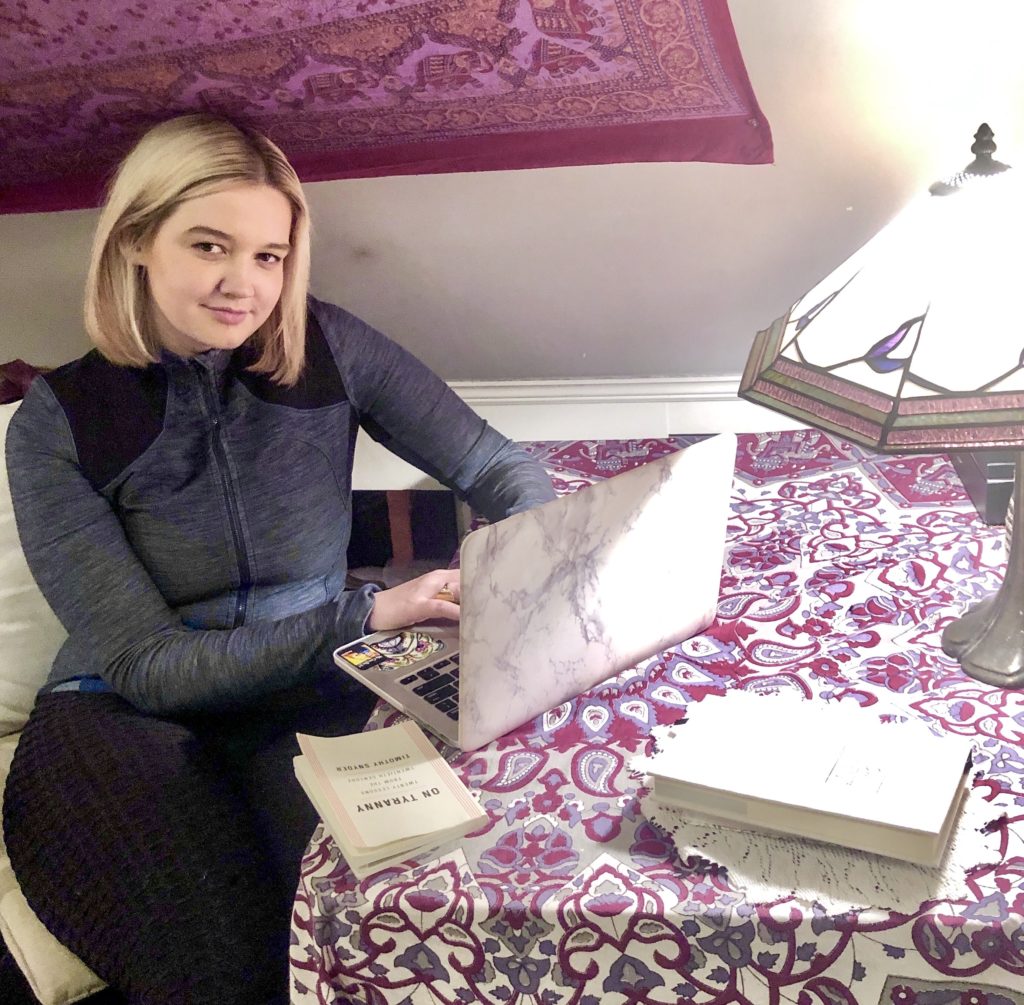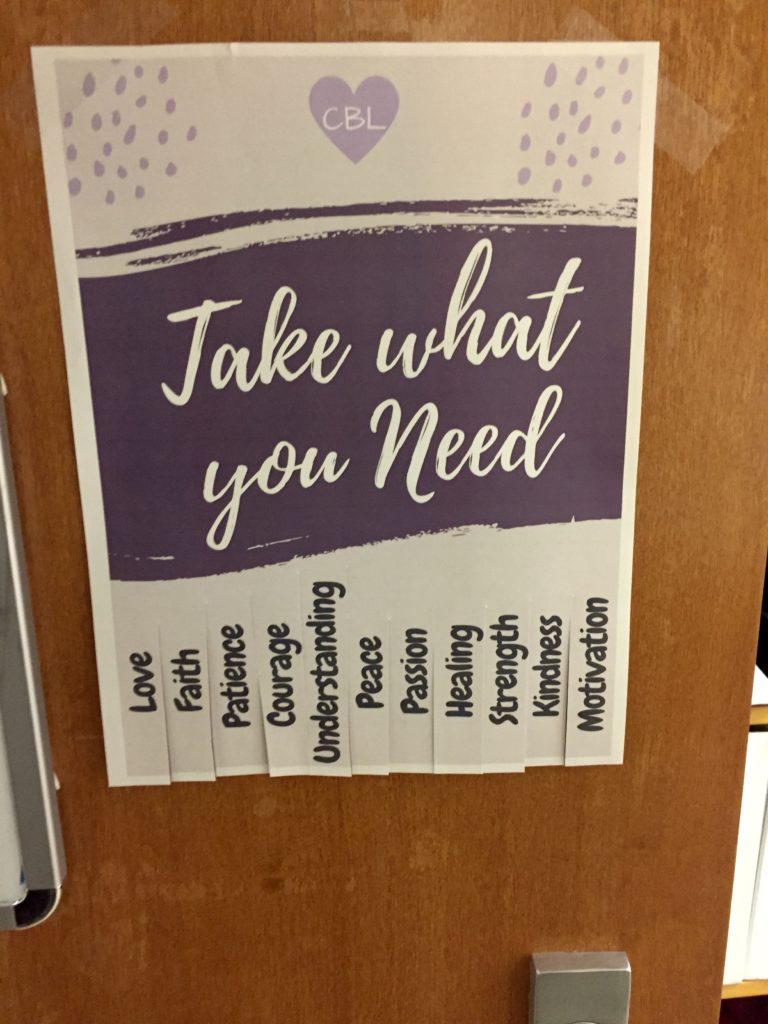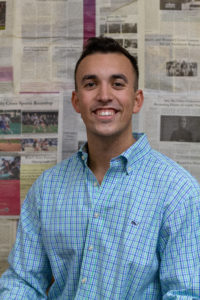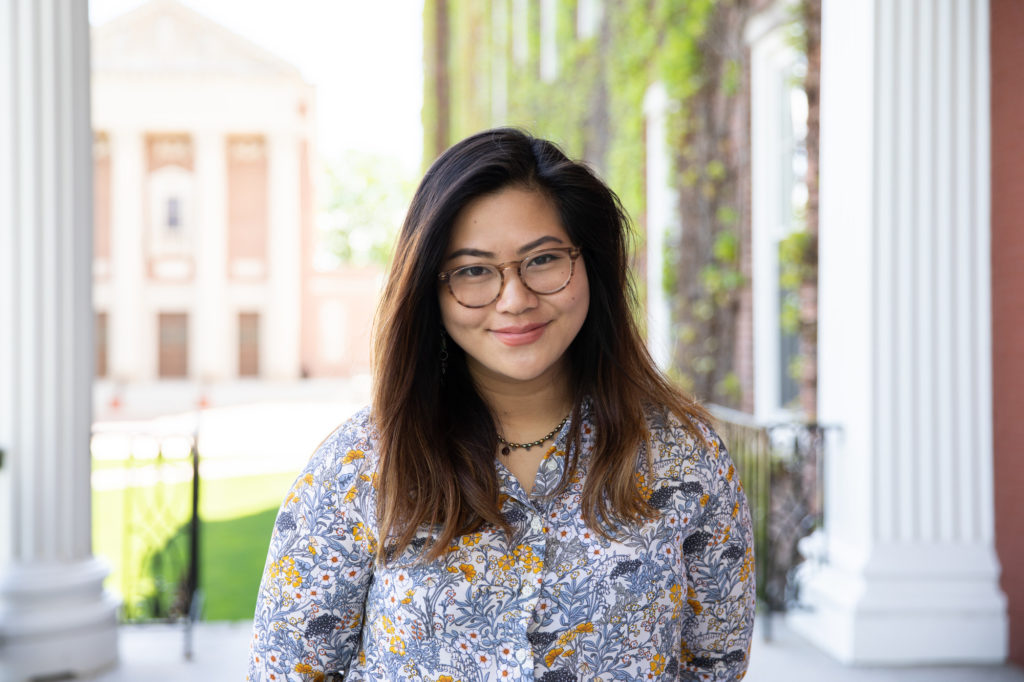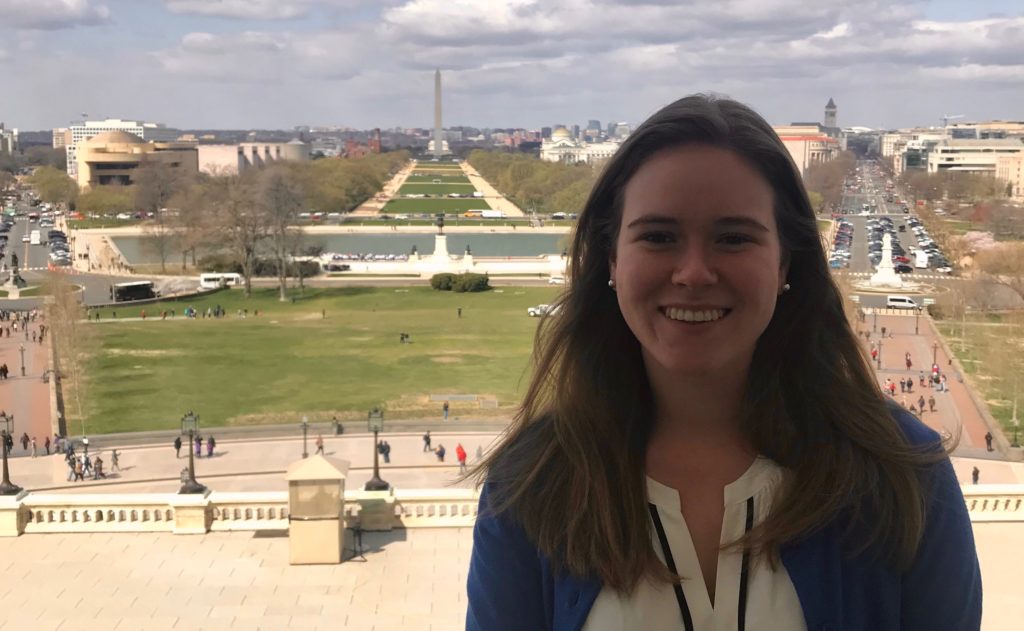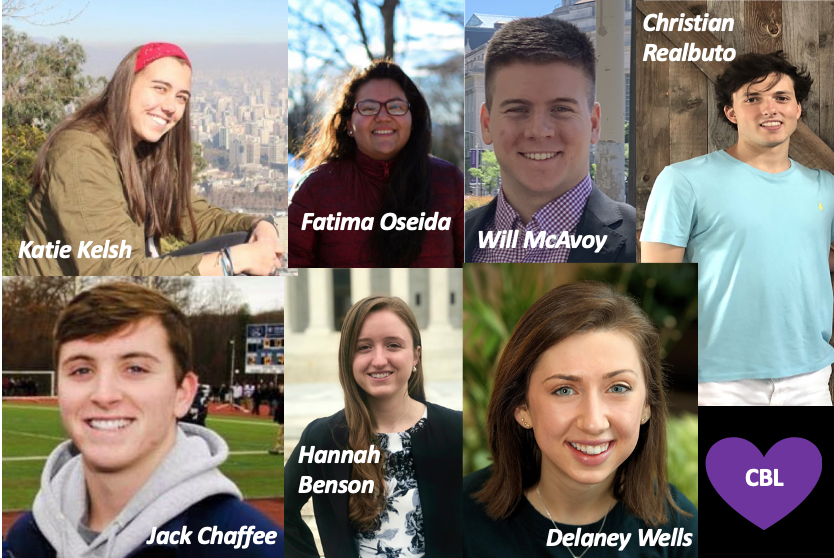
Editor’s Note: This post was originally featured on the Donelan Office of Community-Based Learning blog on May 4, 2020. You can read the original post at https://communitybasedlearning.me.holycross.edu/2020/05/04/reflections-from-our-senior-interns/.
Upon the end of their time as Interns in the Donelan Office and their graduation from Holy Cross in May, our seven senior CBL Interns were asked to reflect on one or more of the following questions: (1) What is my greatest learning from being a CBL Intern? (2) How have I grown in my time as a CBL Intern? (3) What will I take with me from the CBL Intern experience into my next step? They each share thoughtful remarks about how their time as Interns has shaped and molded their Holy Cross experiences.
Hannah Benson ’20: My greatest lesson from being a CBL Intern will always be the lesson of collaboration. I have learned that there is so much power in starting new ideas with others. As a group, we inspire each other, and because of this, the outcome can reach its full potential. Not only is this true for the CBL interns but for partnerships with community partners, other CBL Holy Cross students, professors, SPUD leaders, and more. Some of my best ideas come from conversations with others.
It can be difficult to consider my own growth as an Intern, but I know it’s there because I surround myself with people who let me know. I started in the CBL office as a sophomore, went abroad in my junior year, and came back as a senior and it still feels like yesterday that I was given the opportunity to start working closely with the office. I think of examples like taking Professor Sterk Barrett my sophomore and senior years and facilitating discussions in Professor Lipsitz’s “Science of Happiness” Montserrat course for those years as well. These mentors and many more have seen my growth and given me the space to learn.
For me, the most incredible thing that CBL has given me is the fearless ability to take on any project. The world we live in is not perfect, but it is not permanently broken either. There is always room for improvement and what the world needs is people who have the ideas and the willingness to work hard and make it happen.
Jack Chaffee ’20: I would say that my greatest learning from being a CBL Intern is the importance of building relationships that are founded in mutuality and reciprocity when fostering community within Worcester and Holy Cross. CBL provided me with some of the most informative and transformative experiences of my four years here at Holy Cross, and I am incredibly grateful for the lessons I learned along the way, especially about how we engage with one another. During my time as a CBL intern I grew more confident in my abilities to be a leader and peer, while also gaining a much deeper understanding of systematic issues we face as a society. After being an intern for three years, I feel much more confident in advocating for ideas or concepts I believe in, many of which have been formed by experiential learning opportunities such as CBL. Being a member of the intern cohort, and receiving mentorship from the Directors of the Donelan Office, have strongly encouraged me to pursue what I am passionate about. The support I have felt from the CBL Office was important in my discernment of post graduate plans, and I will take this lesson of unwaveringly pursuing my passions with me as I prepare to leave Holy Cross and become an assistant in L’Arche Jacksonville.
Katie Kelsh ’20: The time I have been fortunate enough to spend within the Community-Based Learning community at Holy Cross has taught me many lessons. I have learned how to make delicious empanadas with the Worcester Public School Transition Program and the best strategies to painting French nails from Wanda at Training Resources of America. However, above all, this time has revealed to me the true value of asking a question. I have learned that it is from a simple question, such as “How was your weekend?” that meaningful and lasting relationships can begin. I could not be more grateful for these relationships I have been able to form on and off the Hill through CBL, as they have greatly enriched my Holy Cross experience. Ending my time with the CBL office is one of the hardest parts of leaving Holy Cross, but as I move to my next steps beyond HC, I will carry with me all those I have met through CBL and hope to continue building community, one question at a time.
Will McAvoy ’20: From my time as a CBL Intern, I had the opportunity to learn from my peers and realize that we all have different interpretations of the world around us. I realized this during countless reflection sessions, at dialogue sessions, during the NPCC, during intern meetings, etc. From tutoring children to sitting with the elderly, students would have different experiences between sites. Students also interpreted their experiences differently at the same site. I quickly realized in my first year Montserrat with Professor Ginny Ryan that there was no “typical experience” with CBL. Throughout the years, hearing different students explain their experiences made me grasp the course material in a different way. It was a paradigm shift. To me, that is what makes CBL so powerful; it allows all of us to view our experience in and out of the classroom in a different way, thus allowing us to have a greater learning experience that leaves a meaningful impact on each of us.
I have also learned to embrace silence. This has happened in two places. The first is bedside at the St. Mary Center. I have learned from professors that sometimes the power of being present is simply enough for a resident. Maybe the resident is tired and would rather rest by watching a show with you instead of conversing. Similarly, in small group reflections, I have learned that silence can be a powerful moment for reflection that can allow not only you, but those around you, to reflect on their experiences. From this, I have learned that moments of silence do not need to be filled. Rather, they should be embraced.
Having the experience of CBL has shown me that everyone around me has their own personal experiences that they bring to the table. What I feel in a certain time is rarely the same as someone around me, and that is something that we all need to take into account. Sitting bedside at the St. Mary Center reminds me of my grandmother who passed at a hospice center several years ago. Another student at HC may not have had that experience and would benefit from hearing my story. Similarly, hearing perspectives from others that I personally have not experienced will allow me to learn. I also learned that everyone has their own internal and external struggles that are rarely visible. Having these different lived experiences allows us to be a stronger group. These different personal experiences need to be welcomed and cherished as they will allow us all to learn more from one another.
Fatima Oseida ’20: Being a CBL intern was one of my favorite roles on campus. When I first came to Holy Cross, I did not know much about social justice or what it actually meant. While I was still finding myself, the opportunity of becoming an intern came across, so I applied and gratefully got the position. Ever since then, every day has been a learning experience. Not only did I learn more about social justice, but I also learned about its importance in our community, not only at Holy Cross, but in Worcester. More importantly, being a CBL intern gave me a new perspective on the Jesuit principle “men and women for and with others”, because being an intern is not just volunteering at a local organization and getting some work done. To me, it means to immerse myself in the community and to learn from my own experiences. Now that I am graduating, I came to realize that, through the program, I learned what my true passions are, and that is something that I will be forever grateful for.
Christian Realbuto ’20: The person I am now is completely different from who I was when I first entered Holy Cross – and a significant part of that is because of my experience with CBL and the Donelan Office. CBL introduced me to the strong, vibrant communities that make up the city of Worcester, and allowed me to meet incredible public servants who are committed to their nonprofit agencies that add to the city’s strength and history. CBL has also given me stories of love, along with tremendous sadness. Pain, along with tremendous growth. At the core of this learning has been the incredible power of presence. That’s what we do every week at CBL. We show up. We show up to our sites and share in that vulnerable space, that, by the end of the semester, is no longer just your “CBL site,” but the place where your new friends are, and the place that’s taken a piece of your heart. This learning would be incomplete without cultivating my sense of gratitude. Gratitude for the CBL students who came before me, and paved the way for me to participate in the power of presence. Gratitude for the Worcester Public Schools Transition Program for welcoming me into their community for the past 4 years. And also, gratitude for Isabelle and Michelle – whose commitment to the Donelan Office strengthens our relationship and partnership with Worcester each year.
Being a CBL intern has expanded my understanding of empathy to include different perspectives and contexts. As I learned through CBL, communities — and the people that make them up — do not have “a single story.” In this fashion, service demands that we look beyond “a single story,” and develop intentional relationships that expand upon a person’s whole self.
As I look to make my next steps after Holy Cross, I keep coming back to David Brooks’ opinion piece, “A Nation of Weavers.” “Weavers,” according to Mr. Brooks, “share an ethos that puts relationship over self” and exhibit “radical mutuality” in their relationships to one another. I believe this sentiment encompasses CBL and our community partners. CBL cultivates Weavers – people who recognize the importance of reciprocity and mutually in relationships with one another. CBL teaches that there is no “us” and “them” – there is only us.
Thank you, to the Donelan Office of Community-Based Learning any my fellow CBL interns for all the wonderful memories and experiences I was lucky enough to share in.
Delaney Wells ’20: As I reflect back on my various involvements and endeavors throughout my four years at Holy Cross, I can say wholeheartedly that Community-Based Learning has had the greatest influence on the journey of finding who I am at my core, deeply shaping my mind and heart. The relationships I have built at the Worcester Public Schools Transition Program, among other community partners, within the intern community, and in reflection sessions have prompted me to develop a more critical consciousness about our world, our structures, and the way that I exist within them. I am leaving Holy Cross with a personal responsibility to those forgotten and disadvantaged by normative economic and political structures on local and global levels. Through involvement in the Donelan Office I have come to recognize the importance of the touch of the heart in relationships formed through CBL. This significant touch allows us to form meaningful and deep connections with one another which illuminate truths about ourselves and the world around us. I now value the touch of the heart in all relationships and actions I partake in, motivating me to work for justice and equality. I am leaving Holy Cross with the lessons, conversations, and moments through my involvement with community-based learning at the center of who I am, fueling my drive to continue to seek justice.

